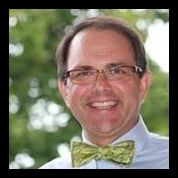The latest enrollment figures for U.S. and Canadian theological schools show a decline or stagnation in every age group except 50- to 64-year-olds. Among these students are successful executives retiring early and eager for a second career.
After retiring from a career of managing TV stations, Will Davis wanted to study the biblical languages at the heart of his faith: Greek and Hebrew.
But soon after enrolling at Union Presbyterian Seminary’s Charlotte, N.C., campus, he realized his calling was to lead churches. At age 60, he switched to a part-time Master of Divinity degree program.
When he completes his degree next year, he expects to embark on his second career, as a pastor. He will be 65.
Davis is part of an older group of seminary students that continues to seek out theological degrees in growing numbers. The latest enrollment figures from the Association of Theological Schools show an overall decline or stagnation in every age group except 50- to 64-year-olds. Unlike other age groups, enrollment among this older cohort has risen steadily since at least 1991. In 2012, there were more than 14,000 men and women aged 50 to 64 enrolled in ATS member schools.
“It’s unclear what impels these students toward seminary and ministry,” write Barbara G. Wheeler and Anthony T. Ruger in a recent study on seminary enrollment published in the magazine In Trust. “It may be that changing cultural norms have made it respectable to retire fairly young from one occupation and begin another.”
Davis, a North Carolina native who worked as general manager, regional manager and vice president of nearly a dozen TV stations across the country, fit the pattern of a successful executive who planned an early retirement.
“Most people aren’t ready to sit on the back porch and watch the birds,” says Davis, now 64. “Most people are interested in second careers.”
A Baptist who married a Methodist and eventually found a home in the Presbyterian Church (U.S.A.), Davis says his Christian faith has always been a central part of his life. As an adult, he taught Sunday school, served as Sunday school superintendent and eventually sought ordination as a deacon and ruling elder in the congregations he attended.
He was nervous, he says, about going back to school and especially cutting his teeth on ancient languages, but he knew he wanted to give it a try.
“My feeling was, if I could get through Greek and Hebrew, I could do it,” he says. “I found an absolute love for both.”
Davis was also fortunate to be able to study at an extension campus designed for older students working full time and pursuing ministry as a second career. The Charlotte campus of the Richmond, Va.,-based Union Presbyterian Seminary is nonresidential and offers classes nights and Saturdays for students commuting from seven states. The average student takes two courses a semester.
Most of its 70 or so enrolled students are older than 40 and ready for a new career; in some cases, it’s a third career switch.
There are more such campuses catering to nontraditional students, says Daniel Aleshire, executive director of ATS. Unlike Union, evangelical institutions sponsor most of these campuses, but there are at least two Roman Catholic seminaries founded for older men wanting to enter the priesthood, Sacred Heart School of Theology in Wisconsin and Blessed John XXIII National Seminary in Massachusetts.
And while many seminary leaders are wringing their hands about declining enrollments among younger students, faltering endowments and other economic challenges, students such as Davis are confident about their academic abilities and future working prospects.
“Older people have life experience that younger clergy do not,” says Davis. He points out that members of mainline congregations are also graying, so they may feel more comfortable with a minister their age.
Older clergy may have other advantages, too. Many no longer struggle financially; they’re not rearing children or building a nest egg — stressors typical of younger clergy.
They may also have better managerial and coping skills.
“By the time you’re in your 50s, most people develop techniques for dealing with stress,” Davis says.
Davis, who has lived in every region of the country, says he’s willing to pack up and move when the call comes.
“I don’t know where I’ll end up,” he says, but “10 to 15 years [as a pastor] would not be out of the ordinary.”
— Story by Yonat Shimron
Source: http://religioninsights.org/articles/seminaries-continue-attract-older-students

 America’s mainline Protestant seminaries are in crisis, but so far they seem to be spending more energy dodging tough choices than preparing for the future. A
America’s mainline Protestant seminaries are in crisis, but so far they seem to be spending more energy dodging tough choices than preparing for the future. A  Среди выступающих на форуме были Ричард Стернс, президент World Vision Inc.; доктор Фрэнсис Коллинз - директор Национального Института Здравоохранения, который известен по инновационной работе в Проекте человеческого генома; доктор Венди Копп - основатель компании «Обучение Америки» и доктор Джон М. Перкинс, известный деятель по миротворчеству и борьбе с расизмом.
Среди выступающих на форуме были Ричард Стернс, президент World Vision Inc.; доктор Фрэнсис Коллинз - директор Национального Института Здравоохранения, который известен по инновационной работе в Проекте человеческого генома; доктор Венди Копп - основатель компании «Обучение Америки» и доктор Джон М. Перкинс, известный деятель по миротворчеству и борьбе с расизмом. сотрудничеству в сфере христианского образования.
сотрудничеству в сфере христианского образования.


